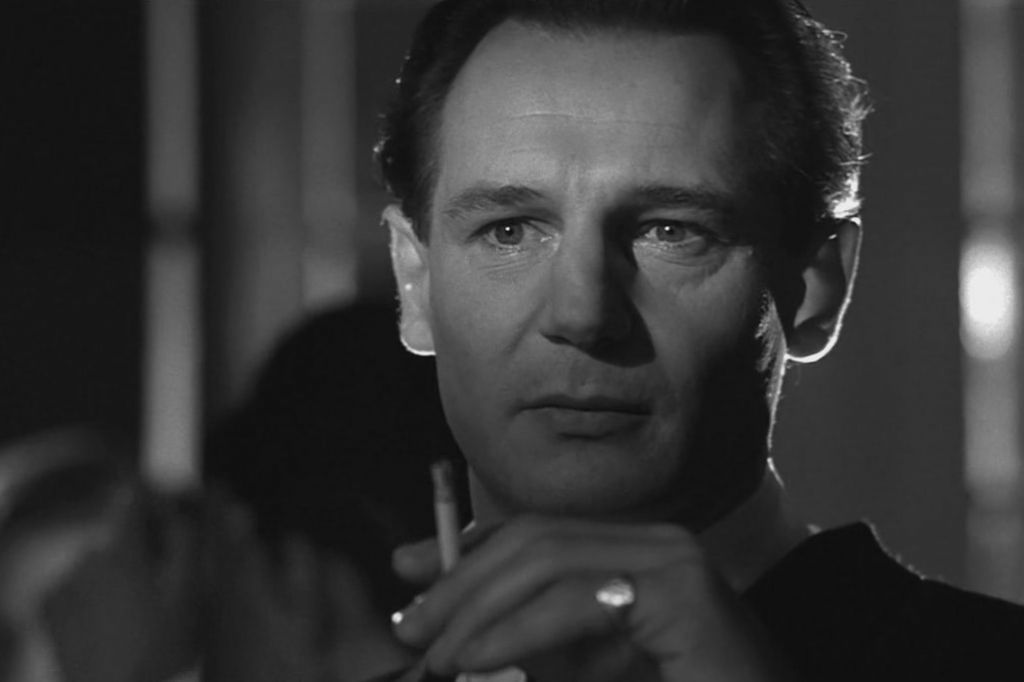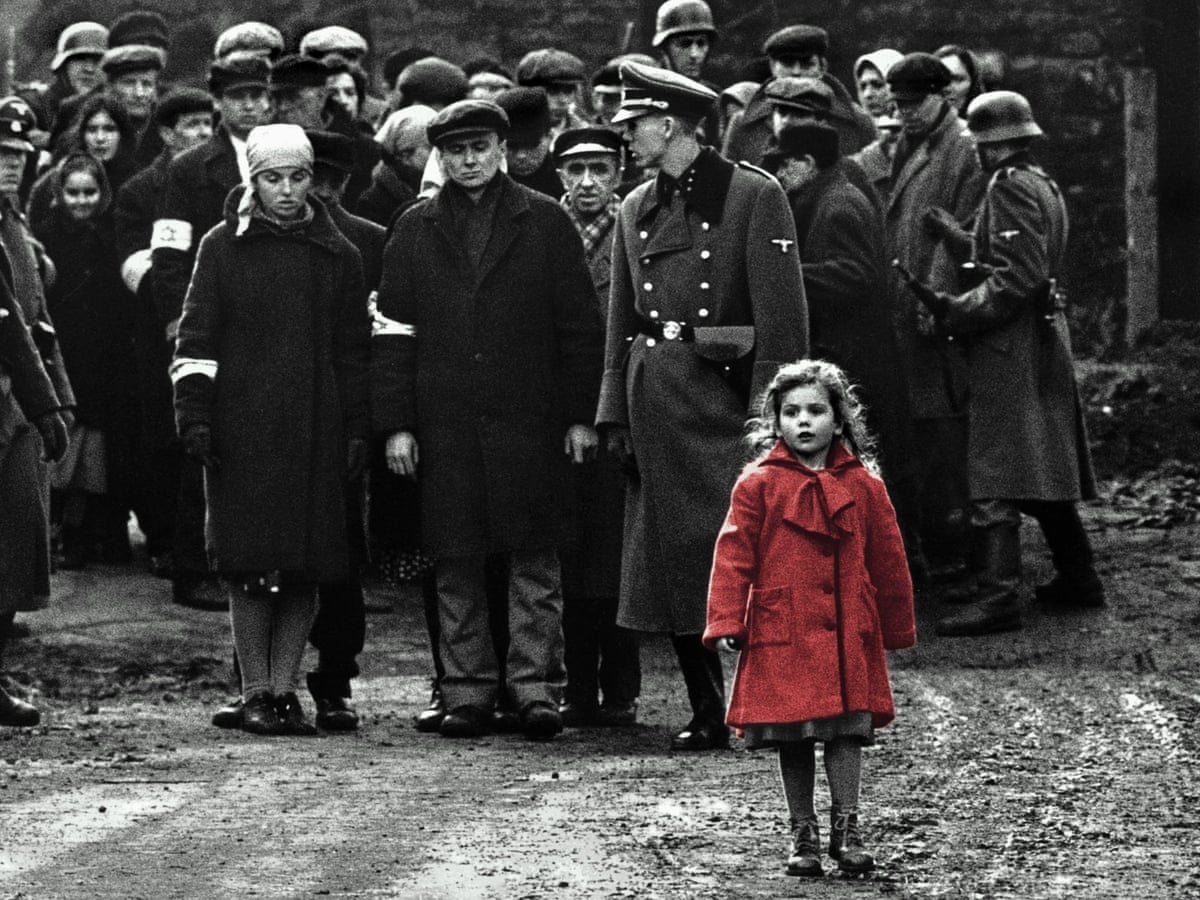I've been familiar with the story of "Schindler's List" for a long time, owing to Steven Spielberg's Oscar-winning and already-popular film. Later, while browsing Goodreads, I discovered that the film was based on Thomas Keneally's book of the same name. I immediately began reading the work, and now, many years later, I have finally read the original of the classic story about humanity and the journey of a German who rescued thousands of people, including his fellow Jews, from a horrible end in the notorious Nazi concentration camps.
We do not need to debate the horrors of the Holocaust, one of the darkest chapters in human history, or the so-called "Final Solution," the Nazi campaign to genocide and exterminate the Jewish population during World War II. But, when it came to the novel, nothing I had read or known about the Holocaust had prepared me for the chilling and meaningless experience, horror, and inhumanity of the Holocaust. In the film "Schindler's List."
The story begins in Cracow, Poland, where terror gradually emerges as Nazis herd Jews into ghettos, vulnerable ramparts that could buy more for the Jewish population. Before the genocide began, I obtained a passport. Then there were the Aktions, the deceptive, persecuted, and outright murder of Jews who thought they were safe in the ghetto, and no one could imagine the horrors of the "bloodbath" intended. Purge in the middle of the street. The shots were fired mercilessly; dead people were piled on top of each other, forming pyramids of broken limbs; infants were snatched from their mothers' arms and smashed against the wall; patients were given cyanide by the doctor because death by poison seemed to be the most gentle and happy departure before the tragedy that other Jews were suffering; men and women were bitten by SS dogs; separated families, children without parents, and the red-shirted shadow of the bright and naughty little girl (who has watched the film will never forget this scene) has averted the scythe death of the terrible SS - the red that plagued Oskar Schindler himself.

The Aktions only served to send Jews to the next level of hell, with Forced Labor Camps, concentration camps, gas chambers, and horrifying crematoriums. And death hung in the air, meaningless and unexpected deaths from the beastman Amon Goeth, Commandant of Plaszow Forced Labor Camp. He had made taking human life as simple and insignificant as going to the bathroom or writing a letter. Human life in comparison to daily activities I have shed tears of anguish for the innocent people who died as a result of the inhuman Aktions, and I continue to cry for the innocent people who were forced to die suddenly and without warning. Finally, Amon Goeth felt compelled to shoot one of the Jews he had terrorized one fine morning.
And, needless to say, the Jews in the camp that day were living in conditions that even animals did not deserve. Head lice, malnourished, boneless, stunted bodies (photographs of concentration camp prisoners show the horrors they faced most authentically), and rows and rows of lice. Electric barbed wire fences, trains transporting prisoners in the dead of winter, frozen corpses that are no longer visible, And then there's the secret love, the encounters with death floating above, the arduous love affairs, and the constant danger. "Schindler's List" not only looks directly at evil and describes it directly, but it also reflects the suspense, insecurity, and obsession inside those Jewish camps, as well as the life they lived in hell.
Amid a dehumanized regime's horrors and the Jews' unspeakable misery, Oskar Schindler appears as the savior described in their holy book - the pagan already. This will provide them with a home, a safe haven from the clutches of death. That savior was far from an exemplary human being: hedonistic, with numerous mistresses, cold and distant from his wife. But the same Oskar Schindler, with his rich life and generous spending habits, is the same person who uses all the tricks, all the clever calculations, and "knowing who knows who knows me" to carry out the "most ingenious, most praiseworthy magic trick to save people who do not share German blood with him."

Oskar Schindler, the capitalist, has acted in his own way to become an Oskar Schindler, the hero, according to a new definition: one who does not directly take up arms to stand up against the forces that spread terror, but in the end, with the silence and help of many like-minded subordinates, saved many Jewish lives from escaping, first from the muzzle of SS Commandant Amon Goeth, then from the concentration camps.
There are Germans who, disillusioned with the terrible malice of Nazi Germany - the force they have dedicatedly served for many years - is determined to throw away all their medals and uniforms to become guerrillas against the Third Reich. The Empire then died, leaving behind martyrs who will be remembered forever. But there are people like Oskar Schindler, who always hung a picture of Führer Hitler on the wall but once wanted to smash it with a chair and secretly wrote the names of the Jews - who had no energy to work - to the list of workers transferred to his factory - a disguised roof to hide and save innocent people. Yes, life and death were separated by a single sheet of paper, a Schindler list, but at that critical moment, that was all that mattered, that was all Oskar Schindler was.
"Save a life as well as humanity" - "Whoever saves a life saves the entire world," is probably the most valuable lesson that Oskar Schindler has learned from the Jewish scriptures, of the nation, to which he chose to devote all of his time, money, and effort. Oskar's final speech before fleeing with his wife Emilie before the arrival of the Soviet Red Army made me realize how much work Oskar and his subordinates had to do to save their lives. Many, many Jews, with the personality of an Oskar Schindler who always knew what was right and wrong, good and bad. Unfortunately, life mistreats the unsung hero, as Oskar was unable to re-experience his golden age of thriving business during the war. He survived on donations from the Jews he had saved and their families for the rest of his life.
It's heartbreaking for Oskar Schindler, but it's also heartwarming to talk about because, after all, he spent three years of his life doing extraordinary things that were rare for any German under the Nazi regime to dare and have the conditions to perform. And he was remembered, as martyrs are, with a tree planted in Israel - a tree that will always remind future generations of a man who kept some hope of humanity, of the beauty of humanity, of fellow man, and of compassion in an age when all of that had been buried in the horror of the Holocaust.

The story has a lot of supporting characters, each chapter mentions one or more different characters, adds a bit of a dry voice, and feels more like writing a report than writing a book, so evoking emotions is difficult. captivate the reader from the start However, if you really read "Schindler's List," readers will be unable to take their eyes off each page as if painting a haunting and moving picture of a period. terrible in human history, and the "living saints" refused to sit back and watch their lives be taken.
I devoured every chapter of this book, moving from horror to horror that the Jews had to endure, and felt as if I had completed a journey. Oskar Schindler and the characters put on an unforgettable show. This is a book that will not only haunt us at the moment but will also make us think for a long time, a book that will inspire us to learn more about world history at the time. During World War II, to comprehend more deeply the terror sown by the Fascists, and how humanity, even if buried, was taken from a country by the vast majority's ignorance. Humanity and human beauty will always triumph over a bloodthirsty extremist ideology. In the end, humanity and human beauty will always win, no matter how cruel reality is.




